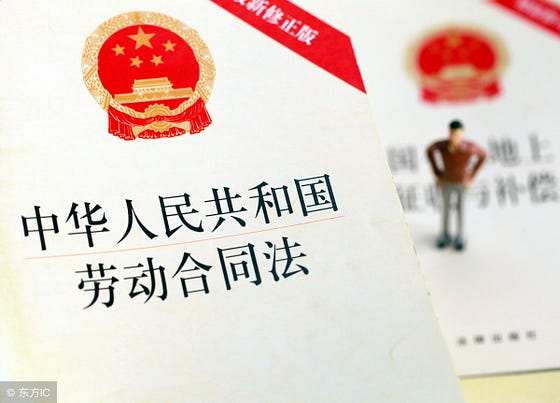
Introduction:
The issue of employee misconduct in the workplace is one that often arises in the corporate world. While companies have the right to dismiss employees who violate company policies, it is essential to determine whether such conduct is a breach of the employment contract. This article explores the case of a Chinese employee who was dismissed from his job after being arrested for soliciting prostitution while on duty. We will examine the legal implications of the company's actions, the relevant sections of China's labour law, and the lessons that can be learned from this case.
The Facts of the Case:
In January 2021, Mr Duan signed a labour contract with a property management company in Beijing. On 2 June 2021, during working hours, he was arrested by the police for soliciting prostitution. In September of the same year, the company sent Mr Duan a termination notice stating that his employment contract had been terminated. Mr Duan argued that he had asked for leave from the company on the day of the incident and that the termination was illegal. He, therefore, took the matter to arbitration, asking to be reinstated. The company countered that Mr Duan's behaviour constituted a severe violation of labour discipline and that his termination was lawful.
The arbitration commission ruled in favour of Mr Duan, ordering the company to reinstate him. The company disagreed with the decision and took the matter to court, while Mr Duan did not file a lawsuit. In court, Mr Duan admitted that he had solicited prostitution during working hours but claimed that he had asked his deputy team leader to leave work to give his mother the keys to his apartment. The company argued that Mr Duan's leave request was not made in writing and that he had violated the company's policies.

The court determined that Mr Duan had solicited prostitution during working hours, a severe violation of labour discipline. However, the court also found that Mr Duan had verbally requested leave from his deputy team leader to go home to give his mother the keys to his apartment. Therefore, the court ruled that the company's termination of Mr Duan's employment contract was unlawful and ordered him to be reinstated.
Analysis:
China's Labour Law contains provisions relating to employers' termination of employment contracts. According to Article 25 of the Labour Law, an employer may terminate an employee's agreement if the employee has violated labour discipline or the employer's rules and regulations. However, the violation must be severe for an employer to agree. Additionally, employers must adhere to the procedures set out in the law when terminating an employee's contract.
In this case, Mr Duan's conduct seriously violated labour discipline. However, the court found that Mr Duan had verbally requested leave from his deputy team leader before leaving to give his mother the keys to his apartment. Although the company argued that Mr Duan's leave request was not in writing, the court ruled that Mr Duan's demand was sufficient. Therefore, the company's termination of Mr Duan's employment contract was unlawful, and he was ordered to be reinstated.
Lesson Learned:
From this case, it is clear that employers must adhere to the procedures set out in China's labour law when terminating an employee's contract. Employers must also ensure that the violation committed by the employee is severe enough to warrant termination. Additionally, employers must ensure that they have evidence to prove that the employee's conduct breaches the employment contract.

Employees, on the other hand, must adhere to their employer's policies and regulations. They must also ensure they follow the procedures in their employment contract when taking leave. Verbal requests for withdrawal may be acceptable.
Backlinks: